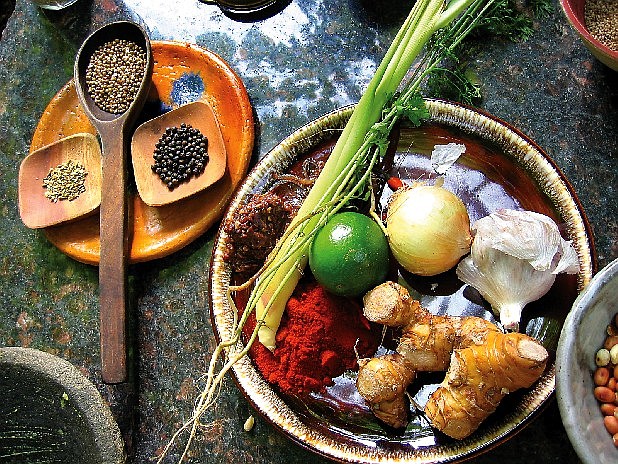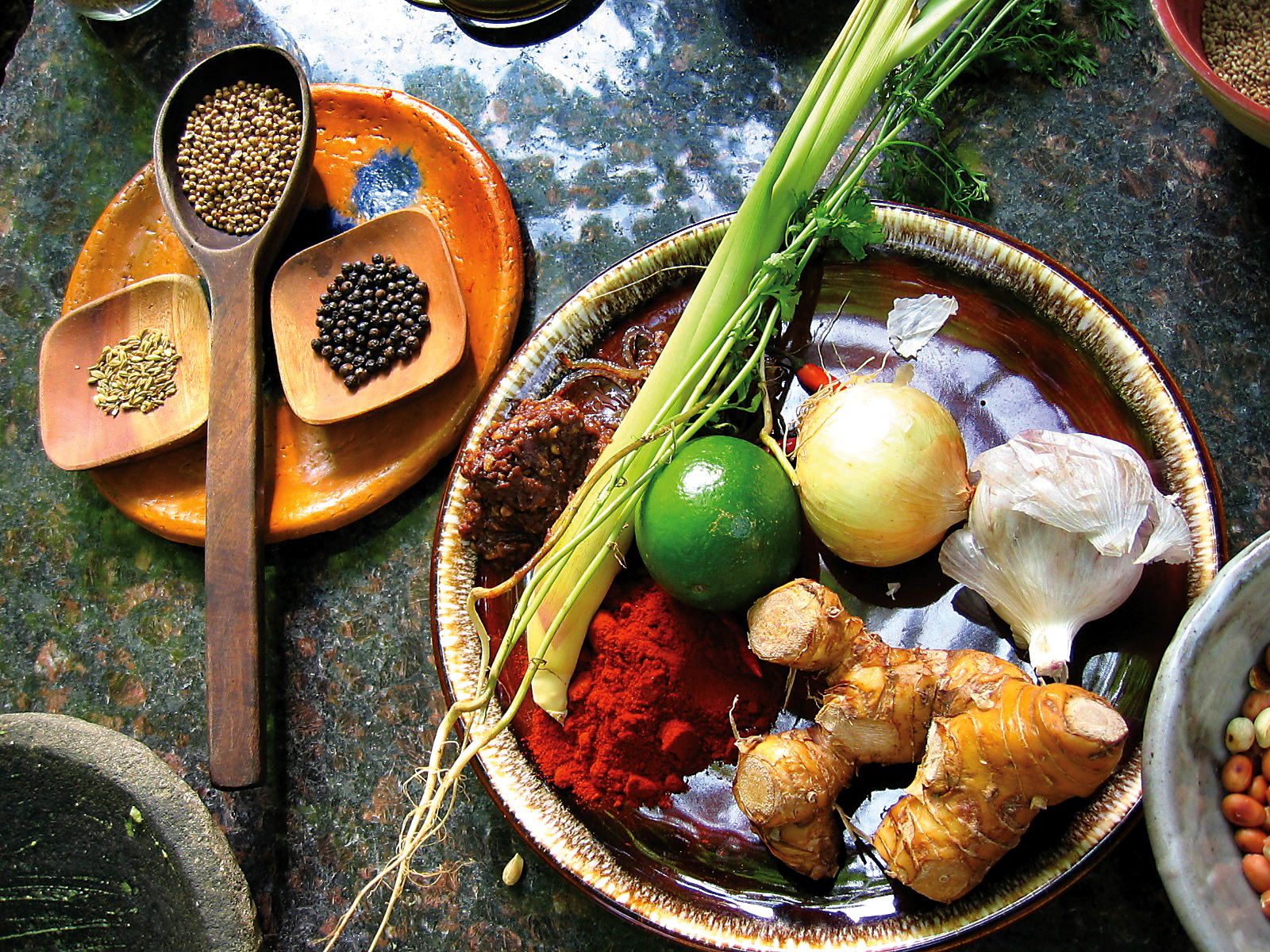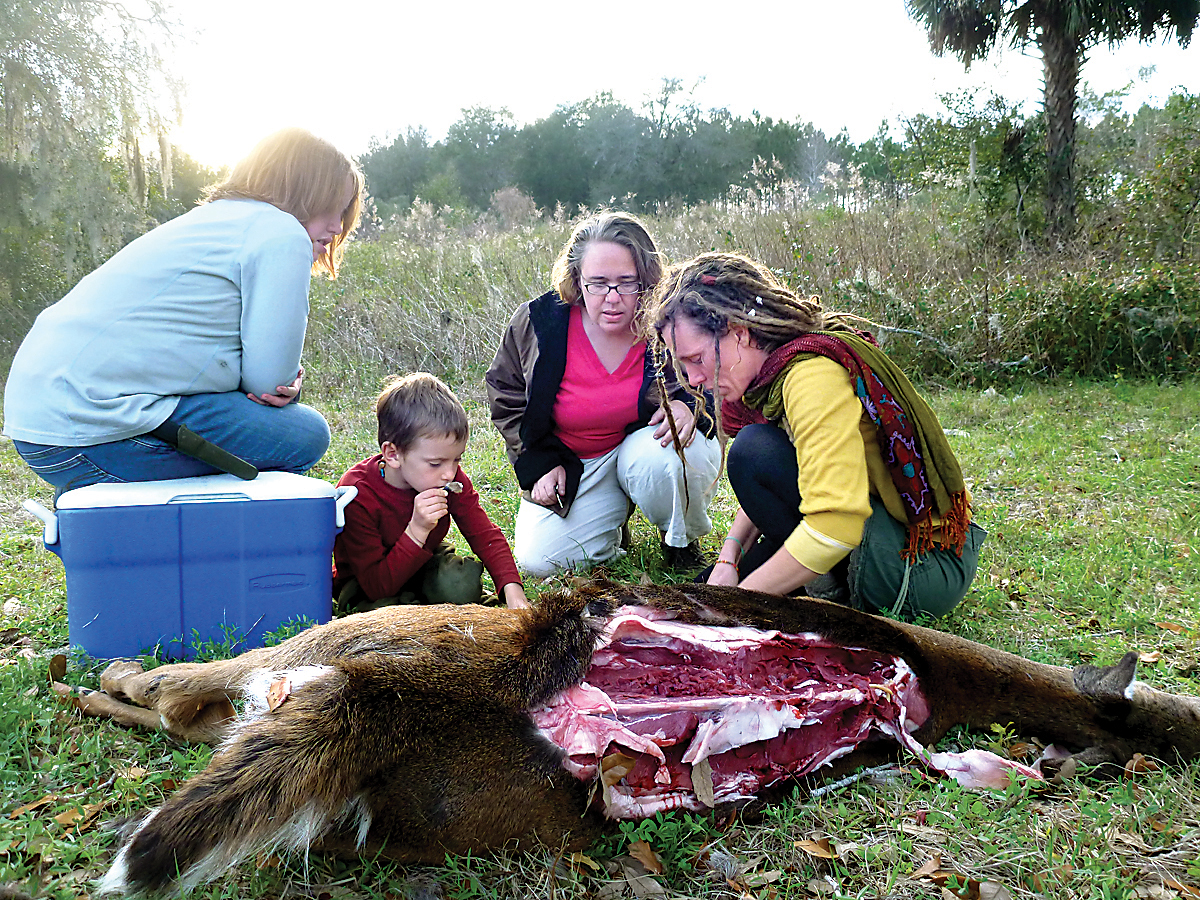Food for Life: Workshop series offers skills and guidance for local, healthy, balanced eating
Thursday, June 26, 2014
IF YOU GO• What: Food for Life• When: Friday-Sunday; registration begins at 10 a.m. Friday• Where: Sequatchie Valley Institute, 1233 Cartwright Loop, Whitwell, Tenn.• How much: Workshops range in a sliding scale from $25-$50 adults per adult per day and $5-$20 per child; meals are included; call for individual workshop times and costs; $10 camping fee for the weekend with sliding scales are available• Information: svionline.org, 423-949-4598 or marissa@svionline.orgWORKSHOPSHere is a list of some of the workshops at Food for Life:• The Yoga of Plants with Eric Lewis• Sandor Katz and the Art of Fermentation• Backyard Butchery with Merryfield's Farm• Fermented Beverages with Marissa Percoco• The Ins & Outs of Scavenging with Chucky Peace Eagle• Debunking Food Myths with Kaleb Wallace• Wild Earth Medicine with Alan Powell• Medicine, Mead and Magick with Patrick Ironwood and Marissa PercocoSource: Sequatchie Valley Institute
If you get Marissa Percoco talking about food, be prepared.
She doesn't need to warm up to the topic; she'll leap right in at a mile a minute, punctuating her statements with frequent laughter.
On this particular day, she's discussing fermentation, a subject with which she's intimately familiar, not only having fermented various types of food and drink for herself over the years, but also having taught workshops that give others the tools and knowledge they need for the process. Fermentation converts sugars to acids, gases and alcohol by using cultures of bacteria, including the familiar yeast.
"I teach fermentation 101 a lot," she says. "I talk about why fermentation is important for what we eat and why it is important culturally, too.
"I like to get people to go 'Oh, wow!'" she says (laughter).
While most folks know that wine and beer are fermented products, few also realize that coffee and chocolate are, too, she says.
"It amazes me how few people know that some of their most beloved addictions are fermented ... and I'm in that group, too" (laughter).
Basic fermentation is only one of the workshops this weekend at Food for Life, an annual series of workshops, hikes, hands-on seminars and other presentations designed to connect attendees with the Earth, its food and drink, and our connection and responsibility to preserving both. Hosted by the Sequatchie Valley Institute, the event, now in its 16th year, brings in experts in fields such as wild plants, breadmaking, organic gardening, butchering, canning and other sustainable subjects. The workshops range from instructional, informational and practical to philosophical and metaphysical.
"As we face increasing problems in the health of our society, where and how we obtain our life's sustenance becomes not only a priority but also an imperative," says Carol Kimmons, director of art and education at Sequatchie Valley Institute. "Food for Life conferences offer participants the necessary skills and guidance for local, healthy and balanced eating. This moves us to an awareness of the life around us that is our food -- plants, animals, fungi, and bacteria.
"We will be especially emphasizing the importance of probiotics through the workshops on fermentation processes, joining our bodies with the larger web of life," says Kimmons, who also is an adjunct professor in environmental science at the University of Tennessee at Chattanooga. "We can produce both food and drink locally and sustainably as our part in creating a better world."
To that end, Brian and Katherine Merryfield will teach folks how to butcher a hog Saturday at Food for Life. They own the 80-acre Merryfield's Farms, located about two miles from the institute, where they're currently raising 28 hogs (27, maybe, after Food for Life), plus rabbits, some turkeys at times and various types of produce.
This is the couple's first full-scale class on butchering -- though they've shown friends how to do it -- and they won't kill the hog-to-be in front of attendees, Brian says, because "nobody wants to see that." Instead, they'll bring the carcass to Food for Life and show attendees where to cut and what to cut while explaining what each piece of meat is. And yes, attendees will do the actual butchering because that's the best way to learn.
"We want the people to be hands-on, so I'm going to stand back and tell them where to cut," Brian says. "We're going to start off with skinning it out and gutting it, then we'll tell them which organs are edible and which ones aren't, and then it's going to be a basic butchering; we're not going to get into a bunch of detail."
The workshop is "strictly knowledge," Brian says, and they don't expect anyone to go out, buy a hog and start butchering on a regular basis. "Most people don't have the abilities to raise a hog," he says.
"But if they did ... it's very educational and they're such interesting animals. Everyone should have a go at a hog; it's character building," Katherine says with a laugh.
Kaleb Wallace, from Asheville, N.C., will discuss nutrition in general, with a focus on how the standard American diet deviates from the human diet that has evolved over the last 10,000 years. The title of his workshop is Debunking Food Myths, which he says is accurate, but mostly he focuses on "the science of the body" and how it uses various nutritional materials, including carbohydrates, fats, amino acids, saturated and polyunsaturated oils.
"I refute the idea that a lot of people have that low fat is healthier and eating animal fat is unhealthy," he says.
He also discusses the differences between omega-3 and omega-6 fatty acids. "Our diets are usually lacking in omega-3 and we get an abundance of omega-6, which is pro-inflammatory while omega-3 in anti-inflammatory."
For her class, Percoco says she'll be bringing in bacterial fermentation cultures for 10 different foods from around the world (yes, she keeps the cultures on hand year-round). She starts with sauerkraut -- "Because everyone knows sauerkraut" -- then moves into, among other items, kimchee, kefir (a fermented milk beverage), kombucha (fermented black tea and sugar, although Percoco uses green tea and honey) and sourdough.
"I have a 130-year-old strain of sourdough that a friend of mine brought from his family in Wales," she says proudly.
Attendees will travel with her into the forest to gather plants for various fermentation processes and they'll also make mead -- a honey-based drink similar to beer -- that they can take home.
"If you do it instead of talking about it, they really get it," Percoco says. "They'll leave with new skills."
She'll also discuss the health benefits of fermentation, which include an efficient gastrointestinal tract "filled with microherds of little bacteria."
"If we're not feeding them fermented foods, they don't work as well," she says. "It's like trying to run your car on water; it's just not going to go."
Contact Shawn Ryan at sryan@timesfreepress.com or 423-757-6327.


